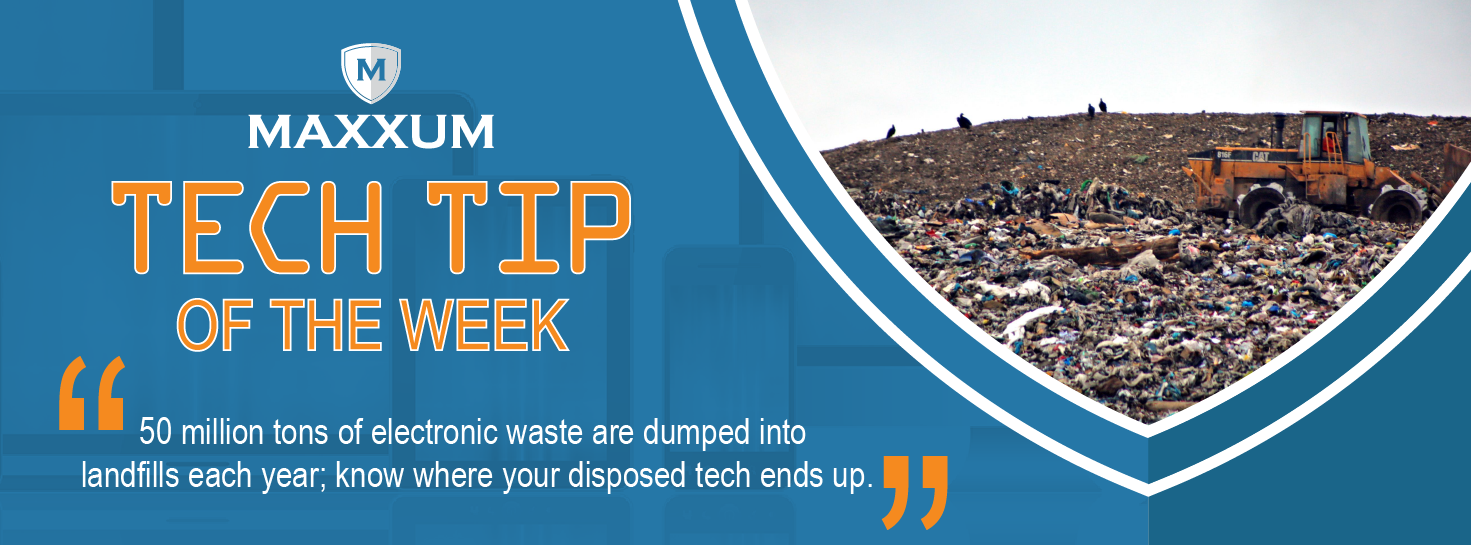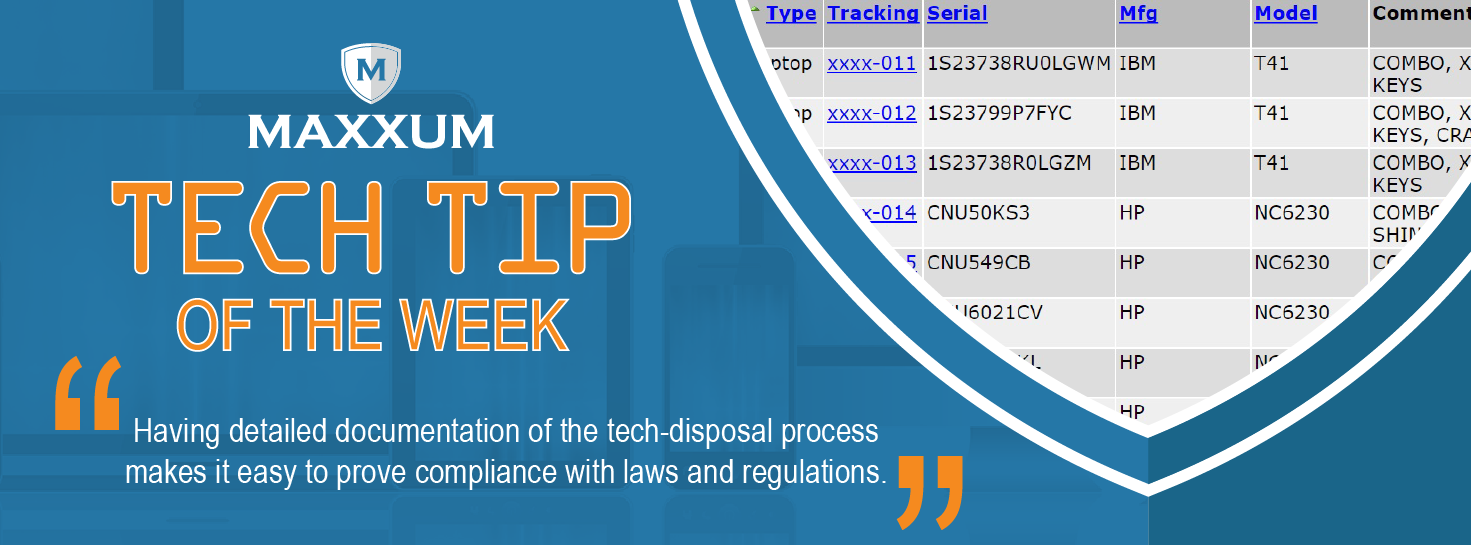Where Does Your E-Waste End Up?
October 8, 201550 million tons of e-waste is dumped into landfills worldwide every year.
That’s a huge number, but it only represents two percent of what is dumped each year. That two percent of e-waste, however, makes up 70 percent of the toxic waste in landfills. According to Popular Science, when electronics start to break down, they release the metals and chemicals inside them, including lead, which has been linked to a myriad of health issues.
E-Waste: What You Can Do About It
It’s obvious that more and more organizations are in need of a technology asset disposal company that responsibly recycles their technology. Maxxum is an industry leader in technology asset disposal because we won’t let our clients be compromised.
In fact, Maxxum has a zero landfill policy. We’re committed to responsible, domestic recycling of technology assets — in the best interest of the environment and your business.
At Maxxum, we believe that retiring technology assets shouldn’t mean risking an environmental breach. We’re committed to smart, strategic partnerships with our clients. We stay up-to-date on laws and regulations regarding environmental responsibility. We develop and support industry best practices in compliance, recycling and reporting.
In order to track what happens to your recycled technology from start to finish, Maxxum executes the following for every client:
- Provides a Certificate of Electronic Equipment Destruction (CEED) that includes serial number, type, date, and our downstream recycle partner
- Thoroughly vets our downstream recycling partners for compliance with our strict standards
- Provides current copies of EPA licenses for all recycling partners
- Reduces end-of-life assets to their smallest component parts and material types
- Engages domestic recycling partners who utilize the most eco-friendly processes
It’s this attention to detail and accountability that makes Maxxum a leader in the field.





